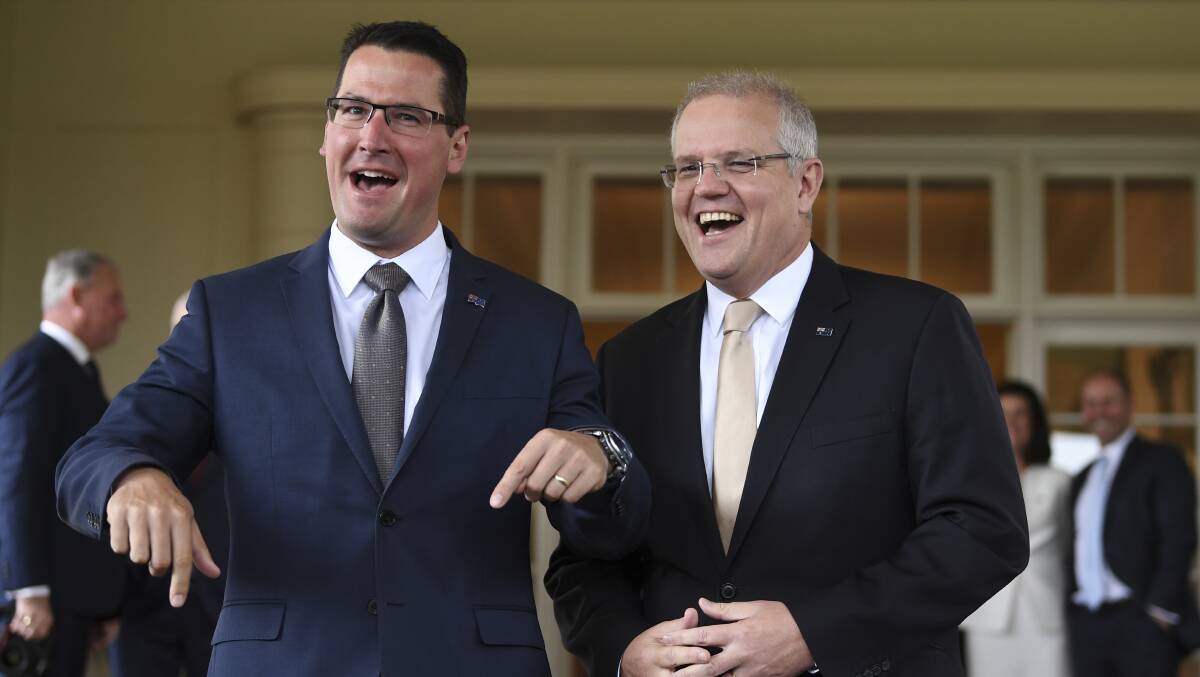New assistant minister for electoral matters Zed Seselja believes the three week period for pre-polling is too long, and is confident there is bipartisan support to reduce it back to two weeks.
Subscribe now for unlimited access.
or signup to continue reading
Record numbers of voters turned out to the polls early in last month's election, with more than four million Australians visiting a polling centre before election day.

Senator Seselja, who was sworn in to his new roles as assistant finance minister and assistant minister for charities as well as electoral matters last week, said he felt it was too long.
"Three weeks seems to be unnecessary and it is changing the nature of our elections a little bit so I think that's a concern that's pretty broadly held across the political spectrum," he said.
Every election is reviewed by the Joint Standing Committee on Electoral Matters, and Senator Seselja said he expected the pre-poll period would form part of the upcoming review of this election.
"The JSCEM final report after the last election did recommend a maximum period of two weeks and I'm very sympathetic to that, so that's obviously something that's going to be under consideration."
Senator Seselja said he was confident a bipartisan position on the length of the pre-poll period could be reached.
Before the election, electoral commissioner Tom Rogers signaled the commission's ageing IT infrastructure needed to be looked at, with rising costs attached to finding staff to work on the old system still in use. Senator Seselja said said the government would look at the issue.
"We'll certainly look at it, obviously within all the usual financial constraints that we have, but I'm aware of those concerns and that is something that will be carefully considered by the government."
In the charities sector, Senator Seselja said he had already met with representatives who had called for changes in red tape and inconsistencies across state jurisdictions.
"Some of the differences across the jurisdictions, in terms of things like fundraising law, are of particular concern to charities, and that's something that's been on the radar for charities for some time," he said.
"It is one of those issues that takes cooperation between the Commonwealth and states to get right."
Senator Seselja said it was also an ongoing concern in the sector that contracts and grants coming from government to parts of the sector were for too-short time periods.
After the final report of a review into charities regulator the Australian Charities and Not For Profits Commission was handed down in September last year, Senator Seselja said he would be building on work done in the previous term of parliament in preparing the government's response.
"The other thing that has been raised with me in the past is issues around the ACNC and their secrecy provisions," he said.
"They are very strict so sometimes there will be public concern about a particular charity, perhaps doing the wrong thing, there may or not be an investigation, but the regulator is not at liberty to say so some of those things are worth considering."
Senator Seselja is yet to have his responsibilities as assistant finance minister under Finance Minister Mathias Cormann confirmed.
Senator Seselja committed to contacting the new minister for decentralisation Mark Coulton to make the case to focus the decentralisation agenda on moving public service jobs from capital cities like Sydney and Melbourne, instead of Canberra.


